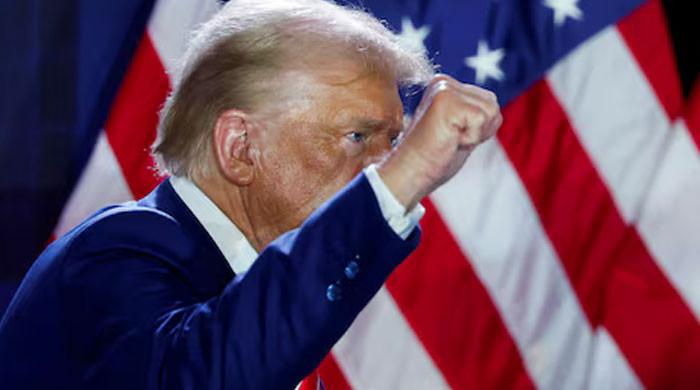Texas Governor Greg Abbott's years of defiance of the federal government have escalated into a border standoff with lives at stake. A Justice Department filing before the Supreme Court on Monday underscored the legal bankruptcy of Texas' position, as well as the high risks of its intransigence.
Under his “Operation Lone Star” initiative, Abbott has brazenly declared that the state will undertake extensive efforts to prevent migrants from crossing into Texas from Mexico and will send them back if they enter. He insists that “Texas has the sovereign authority to defend our borders.”
One small problem: it's not like that. The Constitution unambiguously assigns the regulation of immigration to the federal government. Federal law takes precedence over state laws that purport to exercise immigration authority, and there is no serious argument to the contrary.
Texas' attempts to suggest otherwise are very weak. Their main argument seems to be that the influx of immigrants from Mexico triggers the effect of the Constitution. invasion clausewhich requires the federal government to protect states against invasion, which supposedly gives the Lone Star State the right to take military action regardless of federal law.
But Texas has one thing going for its broader border campaign: the U.S. Court of Appeals for the Fifth Circuit, which is, by most accounts, the most contrarian of the 12 federal circuit courts.
Texas' resistance to the federal law has taken many forms and has led to a series of lawsuits by the Biden administration. Texas has placed large buoys in the middle of the Rio Grande to prevent crossing. It has fenced off a large area along the river and prevented Border Patrol agents from entering critical areas. And he has enacted a law that aims to turn illegal entry into a state crime and give Texas the power to deport immigrants starting in March.
The episode that motivated this week's presentation before the Supreme Court arises from a texas lawsuit That upped the ante significantly. The lawsuit accuses the Border Patrol of removal of erected Texas concertina wire amounted to a “continued and illegal practice that undermines [Texas’] border security efforts.”
The demand borders on nonsense. If the Constitution's supremacy clause means anything, it is that state law cannot be used to defeat a legitimate federal law enforcement function.
The U.S. District Court denied Texas' motion for a preliminary injunction because, among other reasons, the United States has sovereign immunity against such a state suit. But the Fifth Circuit issued an immediate “administrative stay” and then an injunction pending appeal prohibiting the U.S. government from interfering with the fence except in cases of medical emergencies. In a stunningly perfunctory statement, the court held that Texas was not regulating the Border Patrol and therefore sovereign immunity did not apply.
The U.S. government filed an emergency motion to vacate the injunction with the Supreme Court this month, saying the Fifth Circuit was “manifestly wrong” under the supremacy clause and sovereign immunity principles. He added that the court's rationale would allow states “to seek to compel the federal government to adapt the implementation of federal immigration law to the various state legal regimes.”
This week's presentation was from the Department of Justice. second supplemental memorandum to his emergency motion, an extreme rarity. It was sparked by an episode that tragically confirmed the federal government's concerns about Texas interference: Three migrants drowned trying to cross the border on Friday, and Texas National Guard troops refused to give the Border Patrol access to the scene. (Texas questions aspects of the federal account, but not that the Border Patrol was prevented from entering the area.)
The essential dynamic is clear: Abbott and Texas are determined to continue challenging federal law enforcement regardless of the Constitution and the consequences. Indeed, there is a Trumpian arrogance to Abbott's insistence on supplanting federal authorities because they are supposedly not doing the job on his terms.
We've seen this kind of confrontation between state and federal law enforcement in the South before, most notably from segregationist governors like Orval Faubus, who used the Arkansas National Guard to prevent black students from integrating into high school. Little Rock Central in 1957. It took a concerted effort by the federal government and the federal courts to combat that lawlessness.
Abbott's refusal to recognize the supremacy of federal law is as bold and rude as we've seen. The key difference here is the lack of resolve to apply the Constitution among the Fifth Circuit judges, about a third of whom are Trump appointees. Despite its conservatism, the Supreme Court has removed an increasing number of cases from the circuit (it has several on its current docket) and has reversed them about three-quarters of the time. Given that the other, more conservative appeals court is overturned about half as often, that suggests that the Fifth Circuit is not only far-right but downright crazy.
The Texas dispute shows how former President Trump's depredations have outlived his administration. This is because he managed to seed the courts with a cohort of judges who have little loyalty to the federal judiciary's tradition of enforcing the supremacy of federal law. Its corrosive impact will persist for a generation or more.
Harry Litman is the host of Podcast “Talking about federals”. @harrylitman












